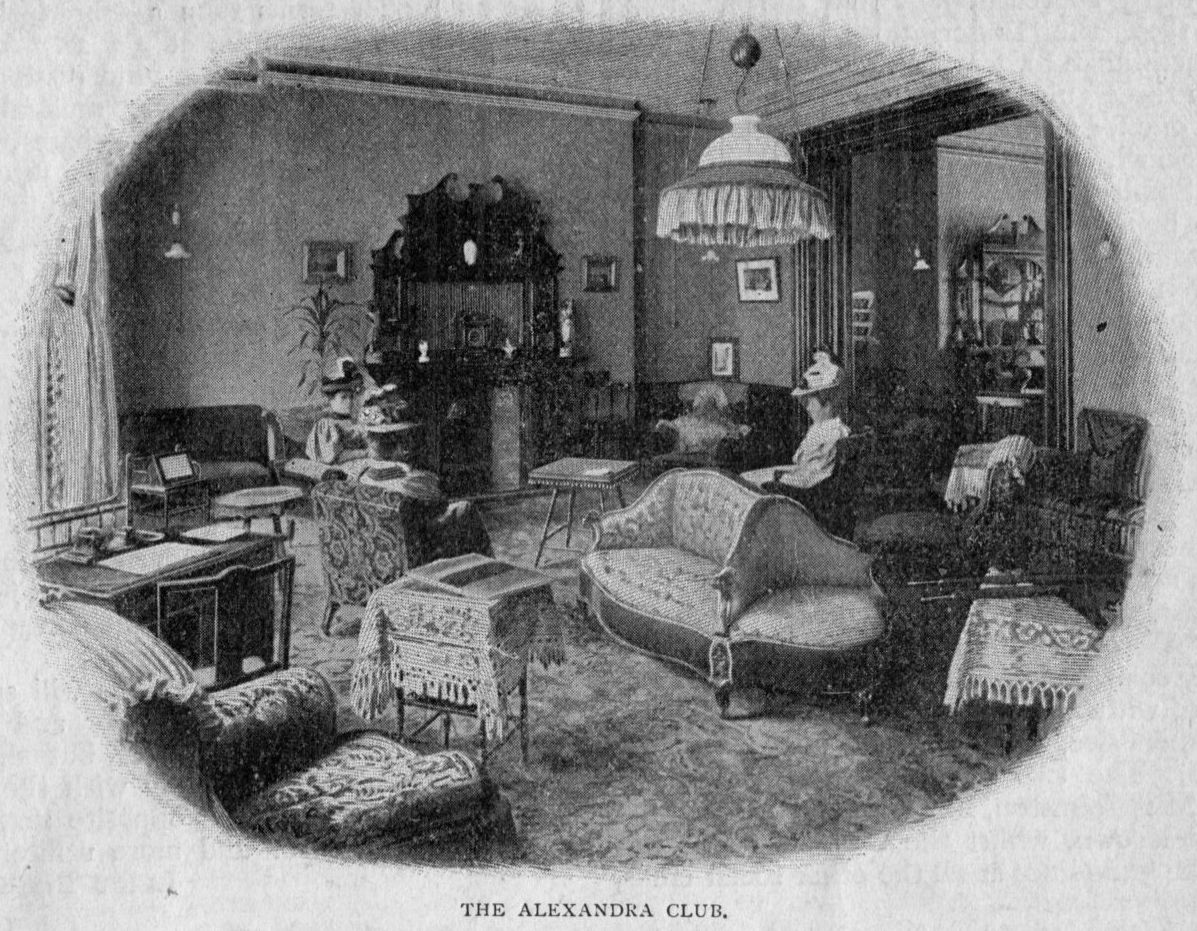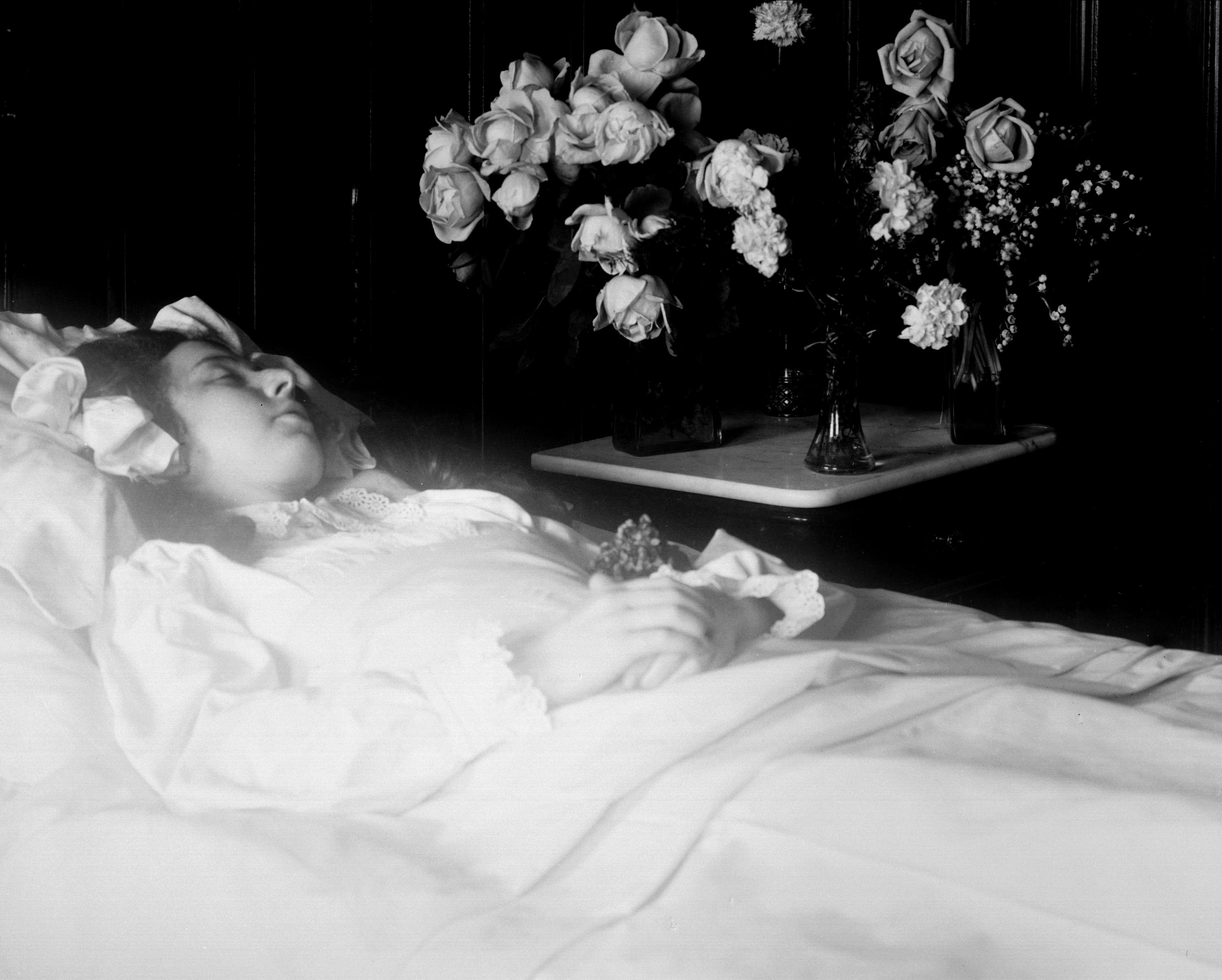|
Alexandra Club
The Alexandra Club was a private members club for women in Edwardian London. It was based at 12 Lower Grosvenor Street, Grosvenor Street, at the east end of the street on the north side, in London's Mayfair district. The club was founded in 1884, and closed in 1939. The club had 600 members by 1888. Membership of the club was only available to women eligible to attend the Queen's Drawing Rooms. Amy Levy in her 1888 novel, ''The Romance of a Shop'' considered the merits of the Alexandra Club against other clubs for women and concluded that the phrase "who has been or who would probably be precluded from Her Majesty's Drawing Rooms" to be "full of the sound and fury of exclusiveness and signifying not so much after all". Smoking was forbidden at the club, and members were not permitted to entertain men. Accommodation was available. The entrance fee was 5 Guinea (coin), guineas, with the annual subscription fee 4 guineas for members from the country, and 5 guineas for those in town. ... [...More Info...] [...Related Items...] OR: [Wikipedia] [Google] [Baidu] |
Claridge's Hotel, Brook's Mews, Alexandra Club 1910 Map
Claridge's is a 5-star hotels, 5-star hotel at the corner of Brook Street, London, Brook Street and Davies Street in Mayfair, London. It has long-standing connections with royalty that have led to it sometimes being referred to as an "annexe to Buckingham Palace". Claridge's Hotel is owned and managed by Maybourne Hotel Group. History Founding Claridge's was founded in 1812 as Mivart's Hotel, in a conventional London terraced house, and it grew by expanding into neighbouring houses. In 1854, the founder (the father of biologist St. George Jackson Mivart) sold the hotel to a Mr and Mrs Claridge, who owned a smaller hotel next door. They combined the two operations, and after trading for a time as "Mivart's late Claridge's", they settled on the current name. The reputation of the hotel was confirmed in 1860 when Empress Eugenie made an extended visit and entertained Queen Victoria at the hotel. In its first edition of 1878, Baedeker's London listed Claridge's as "The first hotel ... [...More Info...] [...Related Items...] OR: [Wikipedia] [Google] [Baidu] |
Lower Grosvenor Street
Lower Grosvenor Street was a street in London, England, later renamed Grosvenor Street. It was at the south-eastern corner of Grosvenor Square, extending eastward towards Bond Street. Count de Melfort, in his '' Impressions of England'', described the street as consisting of "a great number of excellent houses, the majority of which are inhabited by titled persons and affluent families". * 12 Lower Grosvenor Street was home to the Alexandra Club, a private members club for women in Edwardian London. The club was founded in 1884, and closed in 1939. * 16 Lower Grosvenor Street was for some time the home of the Royal Institute of British Architects. * 46 was built by William Benson in 1725. In 1899 it was purchased by Sir Edgar Speyer, who had the building remodelled by Detmar Blow Detmar Jellings Blow (24 November 1867 – 7 February 1939) was a British architect of the early 20th century, who designed principally in the arts and crafts style. His clients belonged chiefl ... [...More Info...] [...Related Items...] OR: [Wikipedia] [Google] [Baidu] |
Anne De Courcy
Anne Grey de Courcy ( Barrett; born 1927) is an English biographer and journalist, including as women's editor on the ''The Evening News (London newspaper), London Evening News'', as a columnist for the ''Evening Standard, London Evening Standard'' and as a feature writer for the ''Daily Mail''. Early life and education Anne Grey Barrett was born in 1927, daughter of Major John Lionel Mackenzie Barrett (d. 1940), of The Tallat, Northleach, Gloucestershire, an officer in the 13th/18th Royal Hussars, and Evelyn Kathleen Frances (1898–1987), daughter of Thomas Stewart Porter, of Clogher Park, County Tyrone (he took his mother's family name, Porter, instead of his father's, Ellison-Macartney, as an heir of the Porter family of Belle Isle, County Longford) Her mother was a descendant of Bellingham baronets#Bellingham baronets, of Castle Bellingham (1796), Sir Alan Bellingham, 3rd Baronet. A brother, Christopher, was born in 1930.''Contemporary Authors'', vol. 121, Gale Group, 2004, ... [...More Info...] [...Related Items...] OR: [Wikipedia] [Google] [Baidu] |
Amy Levy
Amy Judith Levy (10 November 1861 – 9 September 1889) was an English essayist, poet, and novelist best remembered for her literary gifts; her experience as the second Jewish woman at Cambridge University, and as the first Jewish student at Newnham College, Cambridge; her feminist positions; her friendships with others living what came later to be called a "New Woman" life, some of whom were lesbians; and her relationships with both women and men in literary and politically activist circles in London during the 1880s. Biography Early life and education Levy was born in Clapham, an affluent district of London, on 10 November 1861, to Lewis and Isobel Levy. She was the second of seven children born into a Jewish family with a "casual attitude toward religious observance", who sometimes attended a Reform synagogue in Upper Berkeley Street, the West London Synagogue. As an adult, Levy continued to identify herself as Jewish and wrote for ''The Jewish Chronicle''. Levy showed ... [...More Info...] [...Related Items...] OR: [Wikipedia] [Google] [Baidu] |
The Romance Of A Shop
''The Romance of a Shop'' is an 1888 novel by Amy Levy. The novel centers on the Lorimer sisters, who decide to open their own photography business after the death of their father leaves them in poverty. The novel examines the opportunities and difficulties of urban life for the "New Woman" in the late nineteenth century, maintaining their right to independent opinion and the questioning of social norms. Synopsis The novel opens in April, shortly after the death of the Lorimers' father. The house and most of their belongings are to be sold in the coming week, leaving the four Lorimer sisters – Fanny, Gertrude, Lucy, and Phyllis – very poor. The young women realize that they must find a way to earn money in order to support themselves. Gertrude, the novel's central character, proposes that they open a studio and put their skills in photography to use. They decide that Gerty, Lucy, and Phyllis will operate the studio while Fanny acts as housekeeper. Lucy departs for a three ... [...More Info...] [...Related Items...] OR: [Wikipedia] [Google] [Baidu] |
Guinea (coin)
The guinea (; commonly abbreviated gn., or gns. in plural) was a coin, minted in Great Britain between 1663 and 1814, that contained approximately one-quarter of an ounce of gold. The name came from the Guinea region in West Africa, from where much of the gold used to make the coins was sourced. It was the first English machine-struck gold coin, originally representing a value of 20 shillings in sterling specie, equal to one pound, but rises in the price of gold relative to silver caused the value of the guinea to increase, at times to as high as thirty shillings. From 1717 to 1816, its value was officially fixed at twenty-one shillings. In the Great Recoinage of 1816, the guinea was demonetised and the word "guinea" became a colloquial or specialised term. Although the coin itself no longer circulated, the term ''guinea'' survived as a unit of account in some fields. Notable usages included professional fees (medical, legal, etc.), which were often invoiced in guineas, and h ... [...More Info...] [...Related Items...] OR: [Wikipedia] [Google] [Baidu] |
Edward VII
Edward VII (Albert Edward; 9 November 1841 – 6 May 1910) was King of the United Kingdom of Great Britain and Ireland and Emperor of India, from 22 January 1901 until his death in 1910. The second child and eldest son of Queen Victoria and Prince Albert of Saxe-Coburg and Gotha, and nicknamed "Bertie", Edward was related to royalty throughout Europe. He was Prince of Wales and heir apparent to the British throne for almost 60 years. During the long reign of his mother, he was largely excluded from political influence and came to personify the fashionable, leisured elite. He travelled throughout Britain performing ceremonial public duties and represented Britain on visits abroad. His tours of North America in 1860 and of the Indian subcontinent in 1875 proved popular successes, but despite public approval, his reputation as a playboy prince soured his relationship with his mother. As king, Edward played a role in the modernisation of the British Home Fleet and the reorganis ... [...More Info...] [...Related Items...] OR: [Wikipedia] [Google] [Baidu] |
Queen Alexandra
Alexandra of Denmark (Alexandra Caroline Marie Charlotte Louise Julia; 1 December 1844 – 20 November 1925) was Queen of the United Kingdom and the British Dominions, and Empress of India, from 22 January 1901 to 6 May 1910 as the wife of King-Emperor Edward VII. Alexandra's family had been relatively obscure until 1852, when her father, Prince Christian of Schleswig-Holstein-Sonderburg-Glücksburg, was chosen with the consent of the major European powers to succeed his second cousin Frederick VII as king of Denmark. At the age of sixteen Alexandra was chosen as the future wife of Albert Edward, Prince of Wales, the son and heir apparent of Queen Victoria. The couple married eighteen months later in 1863, the year in which her father became king of Denmark as Christian IX and her brother was appointed king of Greece as George I. Alexandra was Princess of Wales from 1863 to 1901, the longest anyone has ever held that title, and became generally popular; her style of dress and ... [...More Info...] [...Related Items...] OR: [Wikipedia] [Google] [Baidu] |
1888 Establishments In England
In Germany, 1888 is known as the Year of the Three Emperors. Currently, it is the year that, when written in Roman numerals, has the most digits (13). The next year that also has 13 digits is the year 2388. The record will be surpassed as late as 2888, which has 14 digits. Events January–March * January 3 – The 91-centimeter telescope at Lick Observatory in California is first used. * January 12 – The Schoolhouse Blizzard hits Dakota Territory, the states of Montana, Minnesota, Nebraska, Kansas, and Texas, leaving 235 dead, many of them children on their way home from school. * January 13 – The National Geographic Society is founded in Washington, D.C. * January 21 – The Amateur Athletic Union is founded by William Buckingham Curtis in the United States. * January 26 – The Lawn Tennis Association is founded in England. * February 6 – Gillis Bildt becomes Prime Minister of Sweden (1888–1889). * February 27 – In West Orange ... [...More Info...] [...Related Items...] OR: [Wikipedia] [Google] [Baidu] |
1939 Disestablishments In England
This year also marks the start of the Second World War, the List of wars and anthropogenic disasters by death toll, largest and deadliest conflict in human history. Events Below, the events of World War II have the "WWII" prefix. January * January 1 ** Nazi Germany, Third Reich *** Jews are forbidden to work with Germans. *** The Protection Young Persons Act (Germany), Youth Protection Act was passed on April 30, 1938 and the Working Hours Regulations came into effect. *** The Jews name change decree has gone into effect. ** The rest of the world *** In Spain, it becomes a duty of all young women under 25 to complete compulsory work service for one year. *** First edition of the Vienna New Year's Concert. *** The company of technology and manufacturing scientific instruments Hewlett-Packard, was founded in a garage in Palo Alto, California, by Bill Hewlett, William (Bill) Hewlett and David Packard. This garage is now considered the birthplace of Silicon Valley. *** Sydne ... [...More Info...] [...Related Items...] OR: [Wikipedia] [Google] [Baidu] |




.jpg)


.jpg)